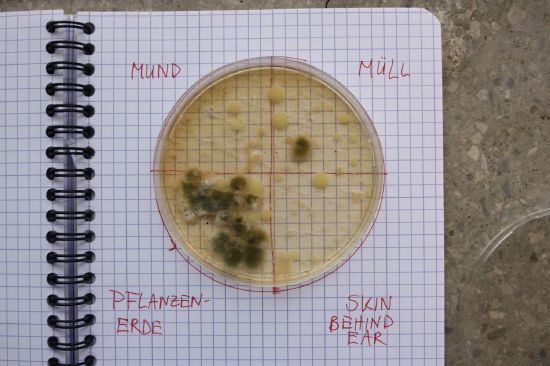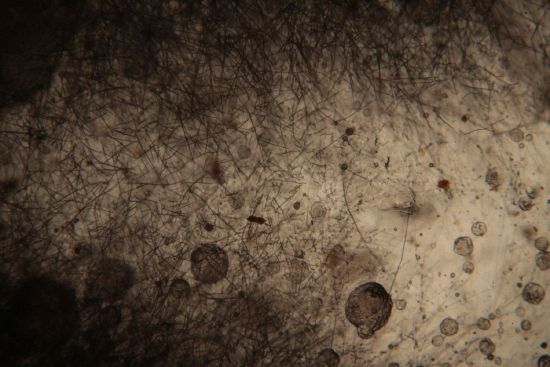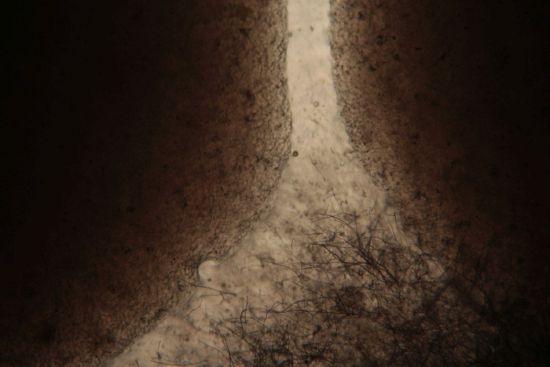Freya Probst (talk | contribs) No edit summary |
Freya Probst (talk | contribs) |
||
| Line 39: | Line 39: | ||
:Inside of the incubator the bacteria eat the lactose found in the milk. | :Inside of the incubator the bacteria eat the lactose found in the milk. | ||
'''2. | '''2. Kombucha Tea:''' | ||
1 cup black/green tea | |||
4 ts (or more) sugar | |||
add a little tea with acto | |||
Revision as of 13:28, 6 November 2016
Basic growth medium for bacteria
- How can we, as people without access to a professional laboratory, grow microorganisms?
1. Procedure:
- The petri dishes are cleaned with a solution of 70% Alcohol + 30% of water.
200 ml destilled water/ tapwater 3 ts sugar 2 ts bouillon/ peptone (proteins) 2 g agar (gellant)
We mixed different mediums, varying the ingredients. Tapwater and bouillon are easily accessible, while peptone and destilled water are more specific.
Mine contained distilled water, but instead of peptone I used bullion.
2. Outcome:
- Only the soil sample showed some result. Besides that we can only observe oil drops from the Boullion.
Bacteria tasting
- Fermentation is a way of preserving food and the reason for that lies within its sour flavour. Under these sour conditions, neither mushrooms nor bacteria (other than our Lactobacillales) will grow. In our stomachs Lactobacillales takes over important functions and we won't kill it by drinking it. However after taking antibiotics humans can repopulate their gut flora by having a probiotic drinks or foods like the followings.
1. Milk -> Yoghurt:
kill possibly pathogenic organisms in the milk: 90°C cool milk down to body temperature: 40°C add the Lactobacillales (in a few spoons of yoghurt)
- Inside of the incubator the bacteria eat the lactose found in the milk.
2. Kombucha Tea:
1 cup black/green tea 4 ts (or more) sugar add a little tea with acto


